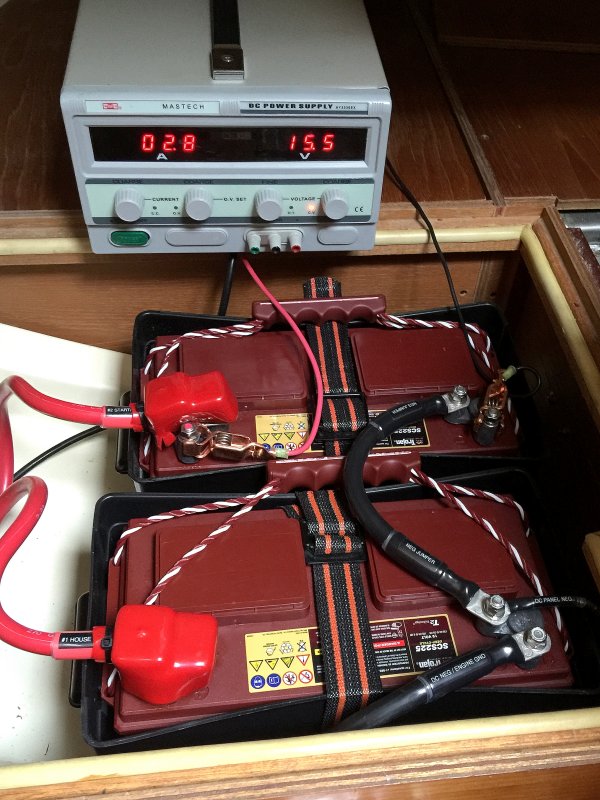self-discharge of lead acid batteries is directly proportional to temperature
Yes. Slower.self discharge at colder temperatures
If the batteries are fully charged, just disconnect the negative cable and call it a day. Flooded batteries need to be fully charged and have enough water.
This.
As long as the lead acid batteries are fully charged, they won't freeze here at -40c, so they will be fine in Nfld.
Disconnecting the cables ensures they won't discharge from load left on by accident or parasitic draw. make sure the batteries are clean.
I guess on the plus side the winters aren't to harsh here.
Harsh winters are better if it does go below freezing.
If the temps get too warm and the snow can melt/freeze/melt, it can cause problems.
If it's actually cold most of the winter, then snow isn't melting. No water entering the boat. No humidity.
Make sure the cockpit drains don't freeze shut.
Here, it's usually a quick transition to cold temps (-15c to -35c) so there isn't much of a ice problem, but with Newfoundland conditions, your cockpit drains could freeze closed, and you eventually end up with a cockpit of water that can drain into lockers, or over the bridgedeck, and into the cabin.
I assume you live near the boat, so just visit it occasionally and make sure it doesn't have too much snow buildup. Especially just before spring melt.
Garboard plug is a good idea. Bayfields in our marina have them.
Fwiw, the majority.of the boats in our marina aren't covered during winter storage. It's nice to do so, but not mandatory.


